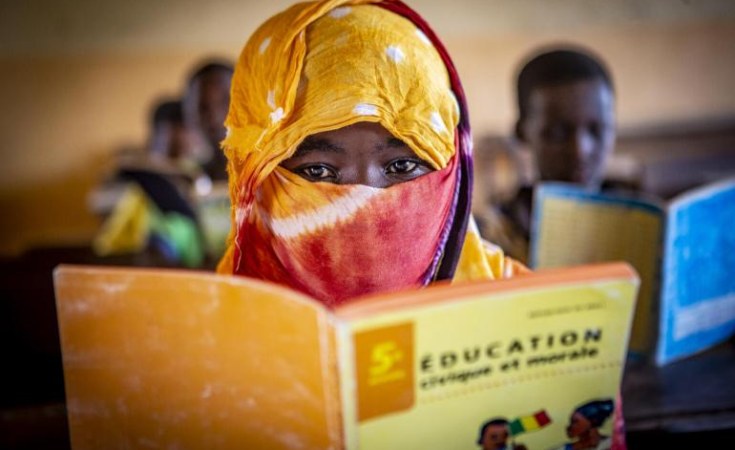Koulikoro — With a determined step, Aminata Fofana walks into the courtyard and sits down on a chair. The teenager unlocks her phone with a swipe of the screen and starts a conversation with her new friends from the adolescent girls' group. This small community allows young girls who were married off early to share their experiences and support each other.
Aminata, 17, has seen her life turned upside down by the death of her father. She was entrusted to an uncle who decided to stop her schooling. This uncle, who considered her an extra mouth to feed, also chose to force her into marriage at the age of 13.
The teenager found herself abruptly plunged into an adult world, forced into marriage when she was still a child.
"I did not like that man," says Aminata, her voice trembling and tears streaming down her face.
"I suffered a lot from that marriage, I even almost lost my mind. It was a marriage of interest, because he was rich. It was not the man who came to ask for my hand in marriage. It was rather my uncle who proposed that I marry him for financial reasons. I refused several times to spend the night with that man, but an aunt forced me to sleep with the man who became my husband by force. I did not like him at all. Just seeing him would ruin my day in advance."
Child marriage generally affects girls and is very high in the regions of Sikasso, Kayes and Koulikoro, where Spotlight Initiative is implementing in Mali. Among women aged 15-49 who are married, the percentage who were married before the age of 15 is higher than the national average of 16.1% in these regions. In Koulikoro, where Aminata lives, 20 per cent of girls are married before the age of 15, according to The Multiple Indicator Cluster Survey (MICS) of 2018.
Aminata, a powerful voice for change
Child marriage is a major obstacle to future prospects, personal fulfillment and educational success for girls. This harmful practice constitutes a violation of their most fundamental rights, and a brake on their development. Children have the right to health, education, and protection against exploitation and violence.
Child marriage also has negative repercussions for society, including the workforce and the economy.
Spotlight Initiative implements community approaches to change norms and attitudes toward child marriage, including adolescent girls' groups for the prevention of child marriage and the care of married children. This approach includes the participation and involvement of men to prevent fathers and uncles from forcing adolescent girls to marry. Thanks to this program, 1,043 marriages of girls under 18 and 1,787 cases of female genital mutilation (FGM) have been averted between 2019 and 2023.
"The Spotlight Initiative Programme listened to me a lot and it helped me," says Aminata. "They helped me, supported me and allowed me to get back on my feet. Today I am well, I am happy to have been able to study and I obtained the Diploma of Fundamental Studies (DEF). I am satisfied with my performance," she says proudly.
Aminata has become a powerful voice within her community. She raises awareness among parents and shares her journey with young girls at risk of child marriage in the community.
"I am a survivor of child marriage. I don't want anyone to rush into marriage. Spotlight Initiative allows me to convey my ideas and raise awareness."
Originally published by UNICEF.


